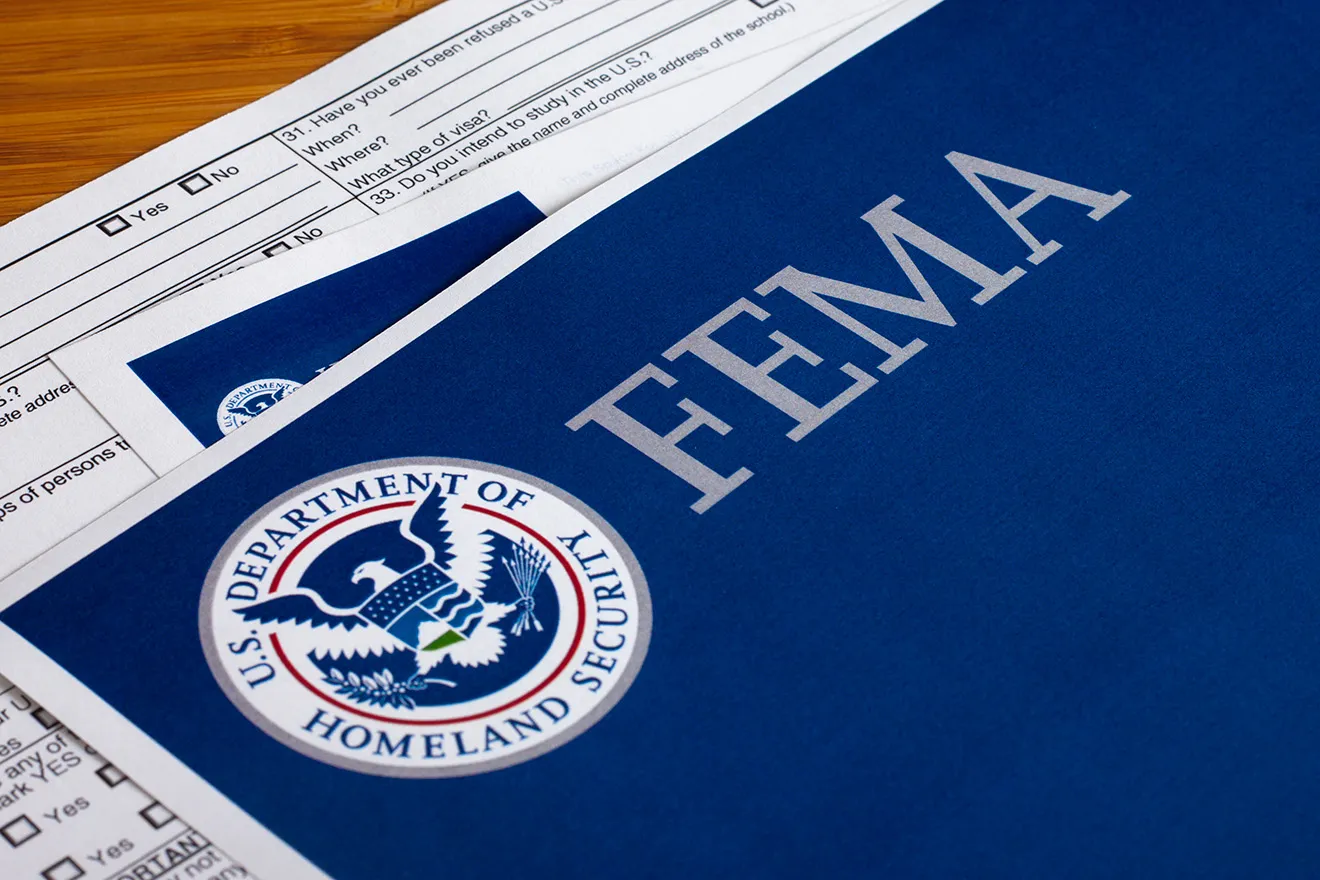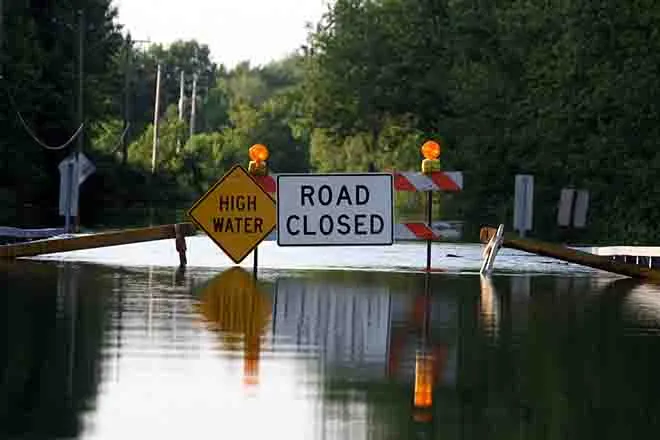
Police agencies lower education standards as staffing shortages persist
More police agencies, from big-city departments to federal agencies, are lowering education standards for new recruits — a sign of how much the profession is changing as it struggles to recruit and retain officers.
This year, at least two major city agencies — the New York Police Department and the Dallas Police Department — have cut some education requirements for new recruits.
In February, the NYPD reduced its college credit requirement for police academy entry from 60 credits to 24. Following a new policy approval in June, the Dallas Police Department began allowing applicants with only a high school diploma or GED to qualify if they also have three consecutive years of full-time work experience.

iStock
Police agencies nationwide are loosening education requirements in an effort to address years of staffing shortages. The changes also come as President Donald Trump has drawn more attention to crime and public safety by deploying the National Guard to Washington, D.C., and Los Angeles, and signaling plans to expand federal enforcement efforts in Chicago and other cities. (A federal judge on Tuesday ruled Trump’s mobilization of U.S. Marines and the California National Guard in response to protests in Los Angeles this summer violated federal law.) Trump also has taken over the District of Columbia’s police department.
Reports of violent crime nationwide have been decreasing since 2022. Some communities, though, are still facing higher rates of certain crimes, including homicide.
The changes in New York City and Dallas are part of a yearslong trend of police departments easing college requirements, a shift that includes Boise, Idaho; Chicago; Louisville, Kentucky; New Orleans; Philadelphia; Pittsburgh; Memphis, Tennessee; and Bellingham, Washington. Even some state police agencies, such as the Kentucky State Police and the Pennsylvania State Police, have followed suit.
But these changes in education requirements aren’t limited to local and state forces. The FBI — which for decades required a four-year degree — will no longer mandate one for new recruits starting in October. New recruits also will receive just eight weeks of training, down from the previous 18-week standard, according to The New York Times.
U.S. Immigration and Customs Enforcement also has loosened standards as the Trump administration seeks to expand immigration enforcement. The agency removed its five-week Spanish-language training requirement. Translation needs would instead be met through unspecified technology, The Intercept reported.

© Daniel Tamas Mehes - iStock-1992275198
ICE has paired these changes with aggressive incentives, including signing bonuses of up to $50,000, as much as $60,000 in student loan repayment and retirement benefits.
These changes reflect a broader challenge in policing: Agencies are still struggling to recruit and retain officers amid increased public attention and shifting workforce expectations.
“The demand exceeds the supply, and what’s happened is the environment for being a police officer has changed,” said Chuck Wexler, the executive director of the Police Executive Research Forum, a national nonprofit think tank on policing standards. “The expectations have never been higher.”
Resignations and retirements rose sharply after 2020, when nationwide protests put law enforcement under closer public scrutiny following the murder of George Floyd by police in Minneapolis. Additionally, some officers are leaving big-city departments for smaller agencies. At the same time, some experts say, police agencies are competing in a tight labor market in which shift jobs may be less appealing than positions with regular hours, higher pay or remote work options.
In recent years, the push for better-educated officers has been rooted in research suggesting that college graduates are less likely to use force and perform better on the job. But some say that strict education mandates can shrink the applicant pool and shouldn’t be the sole measure of what makes a good officer.
“College education, in the greater scheme of things, is advantageous. It’s necessary, but not sufficient,” Wexler said, noting that agencies should also weigh a recruit’s work history, maturity, judgement and other characteristics.
Agencies of all sizes also have adjusted other standards to attract more applicants — raising or lowering minimum age limits, loosening tattoo policies, scaling back fitness tests and waiving exam fees.
In some departments, these changes have sparked a surge in applications, but they haven’t always translated into higher staffing levels overall.
Following the NYPD’s announcement in February that it was changing its education requirement, daily applications jumped from an average of 53 to 231, according to a news release. In early August, the agency swore in 1,093 recruits — its largest incoming class since January 2016.
The New Orleans Police Department nixed its college education requirement in 2015 and saw a surge of 7,440 applications just two years later.
But hiring never kept pace: The department brought on about 100 recruits a year, and far fewer after 2020, according to the city’s hiring dashboard. In 2024, the department received 1,575 applications and hired just 35 recruits.
A report from the Louisiana Legislative Auditor’s office released late last year found that between 2019 and 2023, the department lost nearly 27 percent of its policing staff.
Solving the staffing crisis
Staffing shortfalls have been a long-standing challenge for law enforcement agencies, stretching back well before 2020. But in recent years, hiring has improved in some parts of the country.
The latest Police Executive Research Forum survey, based on responses from 217 agencies across 39 states and the District of Columbia, suggests staffing trends are uneven.
As of January 1, sworn staffing was up slightly from the year before but still 5.2 percent below 2020 levels, according to the survey. Large departments saw modest growth in 2024 but still employ 6 percent fewer officers than in 2020, while medium and small agencies have not just recovered but now surpass 2020 levels.

© iStockbaramee2554
“This period we’re in now, and we have been in for the last few years, is the most challenging time to hire a police officer,” Wexler said.
In recent years, state legislatures also have looked into the education requirements for police. In 2023, for example, Oregon lawmakers considered a bill that would have required at least two years of higher education for departments with fewer than 50 officers and a bachelor’s degree for departments with more than 50. It would have applied to police, corrections, parole, probation and reserve officers, but the bill stalled in a Senate committee.
More recently, lawmakers in California are considering a bill that would, starting in 2031, require incoming officers to obtain a policing certificate, associate degree or bachelor’s degree within 36 months of graduating from a police academy. Incoming officers could also meet the requirement through prior military service or out-of-state law enforcement experience.
The proposal has received widespread support from many law enforcement agencies and groups in the state, including the California Police Chiefs Association, California State Sheriffs’ Association and the Peace Officers Research Association of California.
The sheriffs’ association praised the legislation, writing in a statement that it offers a range of acceptable experiences — “enhancing academic rigor” — without burdensome requirements that could hurt agencies’ recruiting goals.
Police education requirements are often set by individual departments or local jurisdictions, rather than written into state law. Across the country, most local law enforcement agencies require only a high school diploma or GED, though officers with a college degree may have more opportunities for promotions and higher pay.
“Educational standards across law enforcement agencies vary considerably,” said Nancy La Vigne, a criminal justice researcher and dean of the School of Criminal Justice at Rutgers University.
Some agencies also have created pathways for new officers to earn college credit through completing the police academy program and offer tuition reimbursement for those who want to pursue advanced degrees.
But La Vigne told Stateline that in-service training, organizational structure, leadership and accountability mechanisms within a department also play a key role in shaping a well-rounded officer.
“Those factors, I think, override anything as simple as ‘We’re requiring or removing education as a threshold for employment,’” La Vigne said. “Educational requirements alone are not the biggest factor.”
What makes a good cop
What makes a good police officer has long been debated, with discussions often centering on the role of education, training and personal qualities.
Having a college education by itself doesn’t mean you will be a better police officer.
– Chuck Wexler, executive director of the Police Research Executive Forum
Some argue that, rather than lowering education requirements, departments should improve people’s perceptions of the police by becoming more involved in the community, especially at a time when heightened scrutiny has made the job less appealing to some.
“It’s trying to fix the problem assuming that the way things work now is the way things are supposed to be,” said Jim Nolan, a sociology professor at West Virginia University and a speaker with the nonprofit Law Enforcement Action Partnership. Nolan previously served as a police officer and as an FBI unit chief. “It’s the approach to policing that’s wrong.”
Some research suggests that college-educated officers use force less often, face fewer complaints and are disciplined less frequently than their peers without a degree. Some policing experts say a college education may give officers a broader perspective on a range of issues while also strengthening critical thinking and teamwork skills.
Research also suggests that college-educated officers are stronger writers, which can lead to clearer investigations and casework, according to a 2017 report on higher education in policing.
But some experts still caution that the research is not conclusive and argue that education alone isn’t enough to determine what makes a good police officer.
“Having a college education by itself doesn’t mean you will be a better police officer,” said Wexler, of the Police Executive Research Forum.
















